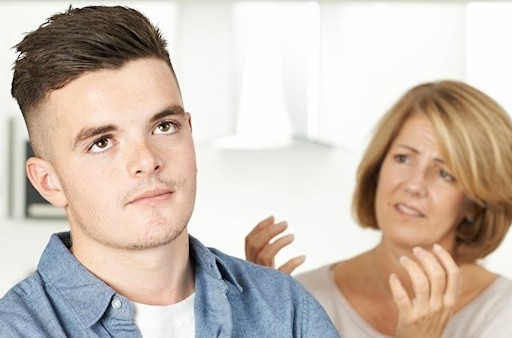In last week’s column I discussed sleep deprivation.
I looked at why we need a restful night’s sleep and how teenagers are often misguided in their approach to study and break a healthy pattern of sleep to get a few extra hours of learning accomplished.
I outlined how dangerous and counter productive this is to an outcome goal and why the body and mind need to be nourished and rested if it is to perform at a high level.

This week I will outline five simple steps you can take to improve your sleeping pattern.
I received a lot of emails after last week’s article from parents concerned about their child’s sleeping habits.
Children need boundaries and parents are the ones who must help their child to navigate the world.
A healthy relationship with sleep is developed in those formative years. Often we can get caught thinking that sleep is something we can’t control.
I regularly hear parents launch the same ill-fated label: ‘He’s just a bad sleeper, that’s all.’ If we believe this, well then, there is nothing we can do.
If we believe he is powerless to sleep deprivation he must learn to live with the consequences of exhaustion.
However, if we look at sleep in a systemic way and examine what his sleeping habits are and ask a few basic questions like, what is preoccupying his mind before he sleeps?
What is he ruminating on that disturbs a peaceful state of mind and why? How does he unwind and what makes him restful?
If we ask a series of questions like these we might actually start a therapeutic conversation about sleep that has the ability to change his sleeping pattern for the better.
Five steps to a better night’s sleep

1. Increase bright light exposure during the day. It is often very difficult in Ireland to get enough bright light during the winter months.
But research shows that exposure to bright light helps to keep your internal clock, known as circadian rhythm, in check.
Natural sunlight or bright light keeps this healthy.
You might find investing in a bright light device one of the first major steps to overcoming sleep deprivation.

2. Reduce blue light exposure. Nothing has invaded our personal worlds quite like technology.
More and more students are coming to me with sleep deprivation, and when I look at their habits, technology and blue light is certainly one of the main reasons why they are struggling to get some rest.
Smartphones and laptops emit blue light and this impacts melatonin production, which regulates sleep.
Downloading software like f.lux will help with blue light on your devices. You should avoid looking at phones after a certain hour.

3. Get consistent with your sleep times. Often what can happen is we have a restless night sleep so we over sleep the following day, or worse, we nap during the day.
This is not a desirable habit to get into because it is not consistent and you are not training your body to when it should be sleeping.
Inconsistent sleeping patterns will only serve to disrupt sleep.
If you have a bad night’s sleep, you should get up at your normal time and work your normal day, avoid naps and go to sleep the following night at the time you normally go to sleep, therefore creating a consistent pattern.
You will be thankful for this in the long run.

4. Make your sleeping environment appealing. Often bedrooms are very untidy, cluttered places with clothes and books everywhere.
A bedroom should be slightly cold and tidy with clean bed sheets for optimal chance of sleep.
Remember it’s far more difficult for your mind to turn off if it is surrounded by chaos so change your bedroom environment.
Make it a place of tranquillity. I had a client once tell me that his wife called his wardrobe ‘the bad mood press’.
He said she called it this because every time she opened it, it put her in a bad mood because clothes would fall out.
An environment like that is not conducive for sleep.

5. What makes you relax? Personally I find reading before I sleep very relaxing and it tires my mind.
Maybe you don’t like reading, maybe you prefer yoga or listening to music whichever it is, figuring out what relaxes you and tires your mind will be an important step to achieving a peaceful night’s sleep.
Also relax about sleep, if you don’t get a good night’s sleep, don’t panic — you’ll get it the next night.
Often people put themselves under pressure to sleep, which has the opposite outcome.

A good night’s sleep is so important for the day ahead. Teenagers need to be supported in their relationship with sleep.
As parents, we must have a policy in the house that removes technology from the bedroom.
When we notice our children are not rested, and are in fact exhausted, we must ask what has happened to their sleeping pattern and how can I support them to get that pattern back on track.
As I said last week, doing well in exams, and indeed in life, is not about pulling ‘all nighters’ and being excessive in your approach to the work you have to do but rather it is about being measured, consistent and enjoying the down time in each day.



